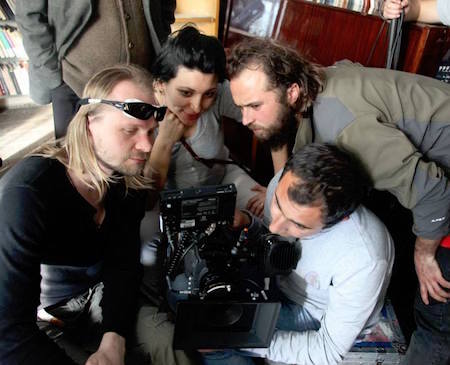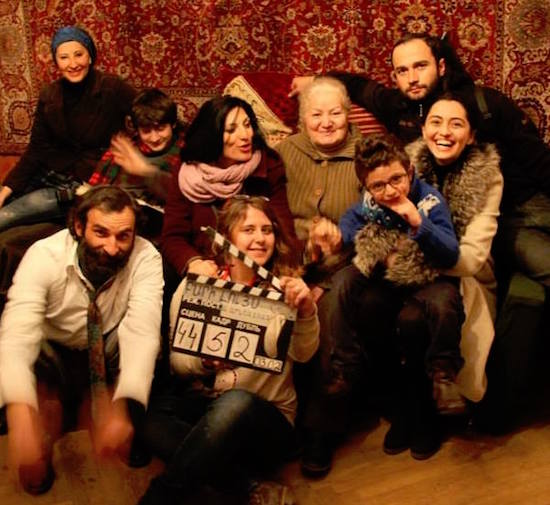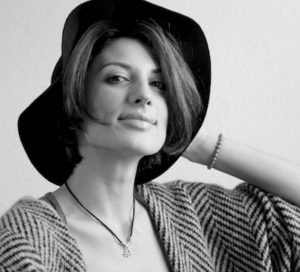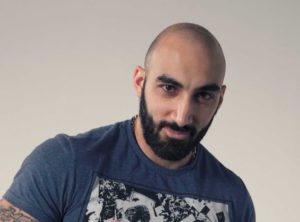2016 AIFF interviews with the filmmakers
Anna Arevshatyan’s first feature-length film, Good Morning, is set to premiere at the Arpa International Film Festival (AIFF) on November 6 at 4:00pm at the Egyptian Theatre. It is indeed an honor for both director Arevshatyan and screenplay writer Sevada Grigoryanto have their film up for three nominations — Best Feature Film, Best Director and Best Screenplay at the 2016 AIFF.
Good Morning is a story about a television journalist, Arshak, who refuses to yield to an obsequious style of news reporting. Adamant about remaining in Armenia, he declines an offer to leave the country and work with his brother. Soon after, he loses his job. Unaware of how he will support his wife and son, Arshak is overwhelmed with guilt and an unshakeable fear of the unknown. With increasing pressure from his wife to emigrate, he is thrust into a deep introspection while journeying to the village where he grew up. Arshak’s childhood memories exacerbate the internal conflict between his unwavering principles and their impact on his uncertain future. We follow Arshak’s struggle to unearth a life-changing direction that he can embrace.
Anna Arevshatyan graduated from Armenian-Russian (Slavonic) University with a journalism degree in 2007. As a part of a series of interviews with 2016 AIFF category nominees, Arevshatyan answered the following questions.

Why did you choose to make your film?
I completed my professional education abroad and during my studies I felt the importance of national identity in our globalizing world. I chose to make this movie to talk about some very basic and important things that can be forgotten in our fast-moving and changing world.
Name a moment during shooting that made you proud.
One of the main characters of the movie is a 6-year-old kid. I think in the beginning we were not completely ready for that. He was this kid, who wanted to play, see his mom, and wanted to be just a kid sometimes. Yet I was very proud to see how he transformed into a mature actor every time he heard the word “action”. Without him the movie would not be the same. He managed to overcome himself and set an example for the whole crew. Everyone was stronger with him around. I feel very proud of him and the correct choice we made.
Was there an “Aha moment” while making your film?
One of the most important moments was finding the little boy. According to the script, he was supposed to be a10-year-old boy. I was looking for him everywhere. In schools, studios, but I could not find my little Arshak. I was really desperate when I ran into this little boy with big eyes from a pre-school. The moment I realized I found my hero was the biggest breakthrough. He was younger than the character from the original script, but he was the one. He was the exact age I had been during the years the movie depicts. That helped me feel the character and the events much deeper, on a very personal level.
Was there a bizarre moment that happened while making your film?
The whole shooting itself was a one big bizarre moment. I was heavily pregnant, we had a multinational crew, and a child actor. In brief, it was crazy. One of the most bizarre moments was the shooting of the scene where the hero gets ready for a date. Our cameraman was from Poland and he was familiar with the dark years we went through in the 90s. But the shooting itself was really bizarre. The cameraman and a member of the crew were sitting in the bath tub, because there was no room to stand – the room was full of buckets of water, the way everyone’s house was back in the 90s.
What is your favorite scene?
My favorite scene is the meeting of little Arshak with his father, who had come home from the war to see his family, and then go back. He had brought wood. The meeting of the son, who hoped for his dad’s return, and the father who knows he won’t be staying with his family, is one of the most emotional moments.
What is your favorite line?

My favorite line is from the scene with the grandfather, when he talks about global issues with his grandson. The line says we need to zoom out sometimes in order to adequately evaluate the situation around us.
“It doesn’t make sense to always be watching your step. Sometimes you have to look up to the skies.”
What does it mean to have your film selected as a category nominee by the Arpa International Film Festival?
It’s a very emotional moment, because it’s a big responsibility for a debuting director to participate in the Festival with experienced masters. It’s the first time I have the chance to say something with my movie, and I hope that something will be heard. It’s a great honor and responsibility.
____________________________________________________
BEST SCREENPLAY NOMINATION
Screenplay writer, Sevada Grigoryan, briefly answered the following three questions.
What was the writing process like?
The process of writing for me is like a long road. The road you know exists, but you don’t know how you will pass it and what kind of adventures you will face.
How did the subject matter of the film impact you while writing the screenplay?
Each time it is different. There is no a certain system.
How long did it take you to complete the script?
This screenplay initially was a short story. I wrote this story long time ago, then the idea came to turn this story into a screenplay. I wrote it in six months.
Good Morning (2016) | 104 min. | Drama | Armenia
Be sure to check out the trailer and get tickets today!
 Written by Sharon Swainson
Written by Sharon Swainson
Communications & Development Director
2016 Arpa International Film Festival




